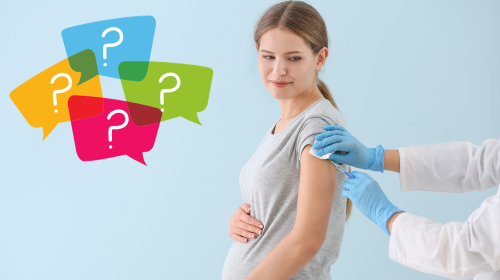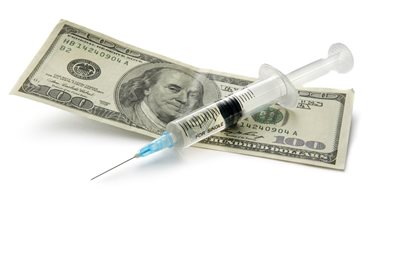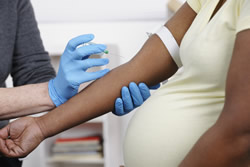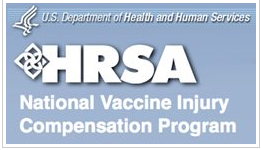.png?lang=en-US&ext=.png)
Pfizer’s Abrysvo Respiratory Syncytial Virus (RSV) vaccine was recommended by the CDC's Advisory Committee on Immunization Practices (ACIP) on Friday, Sept. 22, 2023. The recommendation is to administer the vaccine only during the RSV season of September through January in pregnant women at 32 to 36 weeks of gestation. Abrysvo was approved in August for use in pregnant women to prevent RSV in infants by the FDA.1
The ACIP also approved the use of taxpayer dollars in the Vaccines for Children Fund (VFC) for Abrysvo so that the vaccine may be administered “free of charge” in many settings. The CDC is expected to accept the ACIP’s recommendation and add this vaccine to the adult schedule.
The ACIP also stated that generally, infants born to mothers who had been vaccinated for Abrysvo should not receive the newly recommended RSV monoclonal antibody nirsevimab, known as Beyfortus. This statement would seem to fly in the face of ACIP’s lack of concern in August regarding vaccine coadministration, which was justified by the committee noting that nirsevimab was a drug and not a vaccine.2
Yet Another Pricey RSV Intervention 
One constant for the ACIP was their continued unhappiness with the price tag for RSV interventions. The nirsevimab RSV monoclonal antibody costs $395-$495 per dose3 and Abrysvo RSV vaccine costs $295 per dose. When questioned by the committee about pricing outside the U.S., Pfizer didn’t provide specifics and instead stated that a tiered pricing strategy based on estimated affordability is used.
Notably, the vaccine and monoclonal antibody offer limited protection to infants from RSV - about six months.4 5 6
RSV Vaccination Timing Hoped to Curtail Premature Births
Shifting the vaccination window to 32-36 weeks into a pregnancy is later than the clinical trial window considered by the FDA. Tables comparing outcomes for vaccines administered at 24-31 weeks vs. 32-36 weeks appeared to decrease preterm births. However, due to fewer study subjects, the data is likely to be underpowered and real-world results for premature births in RSV-vaccinated women could differ. Notably, this clinical trial data reflects outcomes for only healthy, low-risk pregnancies.
Clinical Trail Data and Adverse Vaccine Events to be Monitored 
Vaccine safety monitoring for Abrysvo vaccine adverse events will be done through the CDC’s Vaccine Safety Datalink, the federal Vaccine Adverse Event Reporting System (VAERS), and V-safe.
A higher rate of Guillain-Barre Syndrome (GBS), a rare but serious neurological disorder that causes inflammation of the peripheral nerves,7 was reported among individuals who received the vaccine in clinical trials for Abrysvo. There was also a higher rate of atrial fibrillation, a serious heart disorder that may lead to complications such as stroke, heart attack, or heart failure,8 among vaccine recipients.9
In pregnant women clinical trials also revealed higher rates of preterm deliveries, as well as higher rates of pre-eclampsia, a complication of pregnancy with symptoms that include high blood pressure, swelling of the hands and feet, and protein in the urine and gestational hypertension, in women vaccinated with Abrysvo versus those not vaccinated.10
Conditions to be monitored include many neurologic, neuroinflammatory, and cardiac conditions such as GBS, acute disseminated encephalomyelitis (ADEM), multiple sclerosis, meningitis, transverse myelitis (TM), chronic inflammatory demyelinating polyneuropathy (CIDP), atrial fibrillation, and supraventricular tachycardias (SVT).
Pregnancy Vaccination Recommendations Increase as Flu Season is Rebranded
Abrysvo is the fourth vaccine to be recommended for use by the ACIP. Adverse event reports submitted for Abrysvo could also potentially be in connection with the coadministration of COVID-19, influenza, and TdaP vaccines.11
As seasonal COVID-19, influenza, and RSV vaccines are rolled out, what has previously been marketed as flu season has been rebranded as respiratory season to harmonize the push for the uptake of these seasonal vaccines.12
Vaccine Injury Compensation and RSV
The ACIP’s recommendation of Abrysvo RSV vaccine for pregnant women is one of the steps required before the vaccine is covered by the federal Vaccine Injury Compensation Program (VICP).13
Last month, the ACIP approved the drug nirsevimab, as if it were a vaccine and it too may eventually be covered by the VICP.14
About RSV & RSV Vaccine 
RSV is a common and highly contagious respiratory virus that produces cold symptoms such as coughing, sneezing, wheezing, decreased appetite, and fever. Most people who become infected with RSV will recover fully within a week or two without treatment.15
Young infants and children, older adults, and individuals with immune system disorders and chronic health conditions are at an increased risk of RSV infection and may also be at an elevated risk of developing complications from the illness.16 Complications of RSV infection include inflammation of the small airways within the lungs (bronchiolitis) and lung infection (pneumonia) and may require hospitalization for supportive care.17
To learn more about RSV and RSV vaccines and their complications and risks, visit NVIC’s RSV webpages.
References:
1 U.S. Food & Drug Administration. FDA Approves First Vaccine for Pregnant Individuals to Prevent RSV in Infants.
2 Wrangham T. Vote to Add Drug to Childhood Vaccination Schedule Opens Door to Daycare Mandates, Tracking, and Injury Liability Shield. National Vaccine Information Center Aug. 10, 2023.
3 Wrangham T. Vote to Add Drug to Childhood Vaccination Schedule Opens Door to Daycare Mandates, Tracking, and Injury Liability Shield. National Vaccine Information Center Aug. 10, 2023.
4 Ortega-Sanches IR. ACIP Presentation - Economics of Vaccinating U.S. Adults ≥60 years-old against Respiratory Syncytial Virus. U.S. Centers for Disease Control and Prevention Feb 23, 2023.
5 Armstrong M. Nirsevimab data leave the door open for Pfizer. Evaluate Vantage Mar. 3, 2022.
6 Griffin MP, Yuan Y, Takas T, et al. Single-Dose Nirsevimab for Prevention of RSV in Preterm Infants. N Engl J Med. Jul 30, 2020; 383(5):415-425.
7 Wrangham T. ACIP: 2018-2019 Flu Vaccine 44 Percent Effective. National Vaccine Information Center Apr. 7, 2019.
8 NIH National Library of Medicine. Atrial Fibrillation. MedlinePlus Aug. 22, 2023.
9 US Food and Drug Administration. Vaccines and Related Biological Products Advisory Committee February 28 - March 1, 2023 Meeting Briefing Document- FDA: Applicant- GSK. March 1, 2023.
10 Pfizer. Bivalent RSV Prefusion F Vaccine for Maternal Immunization to Protect Infants. Presentation to the Vaccines and Related Biological Products Advisory Committee Meeting. May 18, 2023.
11 U.S. Centers for Disease Control & Prevention. Vaccines During and After Pregnancy. Nov. 9, 2021.
12 U.S. Centers for Disease Control & Prevention. Respiratory Disease Season Outlook. Sept. 14, 2023.
13 U.S. Health Resources & Services Administration. Email Correspondence - EUA Vaccines and VICP. National Vaccine Information Center Aug. 24-30, 2021.
14 Wrangham T. Vote to Add Drug to Childhood Vaccination Schedule Opens Door to Daycare Mandates, Tracking, and Injury Liability Shield. National Vaccine Information Center Aug. 10, 2023.
15 U.S. Centers for Disease Control and Prevention. Symptoms and Care. Aug. 16, 2023.
16 Jha A, Jarvis H, Fraser C, et al. Respiratory Syncytial Virus. June 1, 2016.
17 US Centers for Disease Control and Prevention. RSV in Infants and Young Children. Aug. 4, 2023.





.png?width=991&height=280&ext=.png)


Leave a comment
Your email address will not be published. Required fields are marked with an *